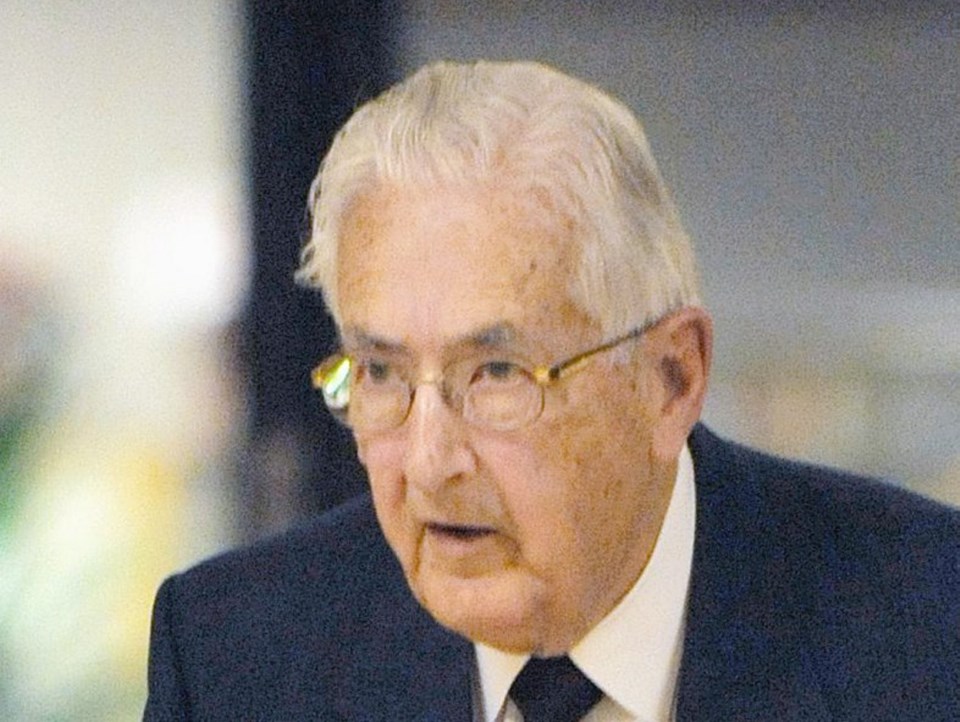 Aboriginal children in care will get a fair share of attention at the upcoming meeting of Canada’s premiers, thanks to the efforts of Ted Hughes.
Aboriginal children in care will get a fair share of attention at the upcoming meeting of Canada’s premiers, thanks to the efforts of Ted Hughes.
The Victoria advocate who redesigned B.C.’s child-welfare system and, more recently, probed a failure in Manitoba’s system has been assured some of the issues he raised in that case will be under consideration at the Council of the Federation meeting.
Premiers will meet in Charlottetown starting Aug. 26, and Hughes has rounded up at least two premiers — B.C.’s Christy Clark and Manitoba’s Greg Selinger — who are committed to championing the issue. Specifically, it’s the huge number of aboriginal children in the care of governments, far out of proportion to the population.
Selinger responded earlier, in the wake of the public inquiry conducted by Hughes on assorted falldowns in the Manitoba child-care system that contributed to the death of five-year-old native girl Phoenix Sinclair.
One of the recommendations was aimed directly at Selinger. It called on the premier to speak to the disproportionate number of aboriginal children taken into provincial care at the next council meeting and seek national solutions.
Hughes subsequently sought a meeting with Clark on the same topic. She and Stephanie Cadieux, minister of children and family development, met with Hughes a month ago to go over the issues common to both provinces, and the country as a whole.
In a recent conference call to discuss the agenda, all the premiers agreed to allot some time to the problem. A meeting with aboriginal leaders is already on the agenda.
Single-handedly getting an item placed on the agenda of an annual council meeting is no small achievement, since the premiers always have a long list of problems to address, and not much time to deal with them. So it’s a tribute to the clout that Hughes carries across the country, based on too many contributions over the years to list here.
But conference talk is one thing, real action on the problem is another. Anyone who was present at the Kelowna Accord will remember how quickly firm commitments and inspiring words can evaporate.
Almost two years of prep work went into a summit meeting of First Nations leaders, premiers and then-prime minister Paul Martin in Kelowna in late 2005. They unveiled a $5-billion plan to tackle all the social problems on Canada’s Indian reserves and there was a remarkable sense of hope at the conclusion.
Summing up all the determination to do something, then-premier Gordon Campbell borrowed from court judgments and told Martin directly: “Prime minister, the honour of the Crown depends on our meeting these commitments.”
Three days later, Martin’s government fell and the Kelowna Accord dried up and blew away.
The number of aboriginal kids in care stems from all those problems the accord was aimed at solving. The issue was secondary to the details of the horror story that was Sinclair’s life, but Hughes has called it a serious problem requiring action at the national level.
Mary Ellen Turpel-Lafond, B.C.’s representative for children and youth, has stressed the same issue numerous times. More than half the B.C. children in care are native, but only 5.4 per cent of the population identifies as aboriginal. Manitoba is 10 per cent aboriginal, but 80 per cent of children in care are native.
It’s good that they will talk about it. It would be even better if they act on it.
Just So You Know: I covered the Kelowna Accord and despite what happened to it, have a specific good memory of the conference. Mingling in the crowd was former Vancouver Canuck Gino Odjick.
What was a hard-nosed hockey enforcer doing at a federal-provincial conference?
He was trying to make a difference. The Algonquin from northern Quebec had an arrangement with the Assembly of First Nations. He often visited troubled reserves when suicide clusters broke out, trying to offer hope.
“I talk to them about finding someone to love, about eating and sleeping right, and how important it is to stay in school,” he told me then.
He’s facing a serious health challenge now and deserves our best wishes.



